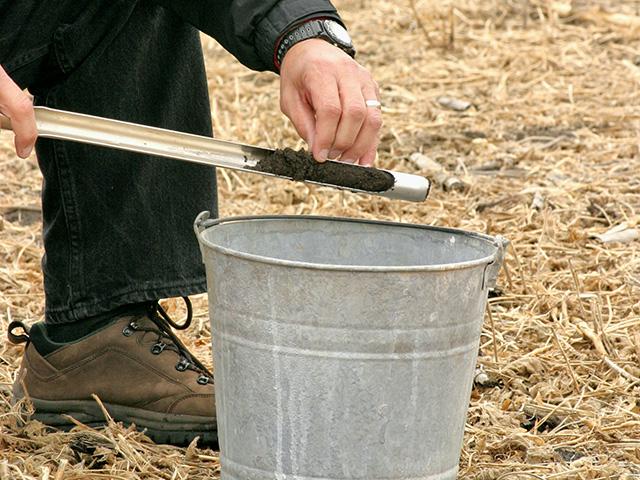Dry Soils Might Hold N
Need Nitrogen This Spring? Check Your Dry Soils
ROCKVILLE, Md. (DTN) -- Farmers who faced droughty conditions in the 2021 growing season might have a valuable source of nitrogen at their disposal: their soils.
Water and soil testing has shown that cornfields in parts of Minnesota, for example, have held tight to nitrates from last year's fertilizer applications, explained University of Minnesota soil scientist Brad Carlson.
"When we talk about dealing with the high cost of fertilizer, this is a pretty good convergence of the fact that it was dry last year, and we now have a tool at our disposal to lower the amount of nitrogen inputs based on that," he told viewers during a webinar hosted by the University of Minnesota. "I would suggest a lot of guys should take advantage of that."
Farmers most likely to benefit from a soil nitrogen credit are those who are planting corn after corn this spring, or planting in fields with a history of long-term manure use, following a dry 2021 season, Carlson said.
University of Minnesota Extension recommends taking 2-feet-deep soil samples -- far deeper than the 6-inch tests for other nutrients such as P and K, Carlson explained.
He shared data from 239 samples across the state taken by the Minnesota Valley Testing Labs in the fall of 2021. They showed a broad range of available nitrates, with 28% of the samples packing a nitrogen credit of 155 pounds and only 28% showing no credit at all.
P[L1] D[0x0] M[300x250] OOP[F] ADUNIT[] T[]
Keep in mind that the soil nitrate test will only show nitrogen in nitrate form, so it might not pick up stored nitrogen in the soil from some fall fertilizer applications, he added.
"This is not going to give you an indication of what's available if it is still in the ammonium form and not converted to nitrate yet," Carlson said.
And the soil nitrate test returns results in parts per million (ppm), so it requires some math to convert those to pounds per acre. The Minnesota researchers suggested the following conversions:
-- 0.0 to 6.0 ppm = zero credit
-- 6.1 to 9.0 ppm = 35 lbs./acre
-- 9.1 to 12.0 ppm = 65 lbs./acre
-- 12.1 to 15.0 ppm = 95 lbs./acre
-- 15.1 to 18 ppm = 125 lbs./acre
-- Over 18 ppm = 155 lbs./acre
See more on testing for soil nitrates from the University of Minnesota here: https://blog-crop-news.extension.umn.edu/….
See archived links to the webinar here: https://extension.umn.edu/….
Emily Unglesbee can be reached at Emily.unglesbee@dtn.com
Follow her on Twitter @Emily_unglesbee
(c) Copyright 2022 DTN, LLC. All rights reserved.






